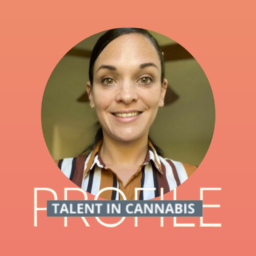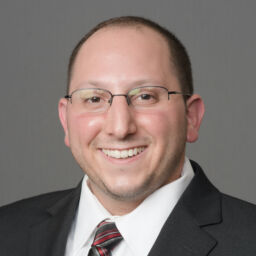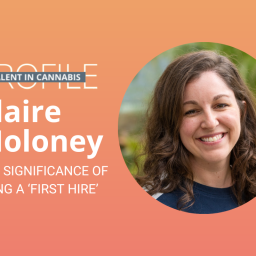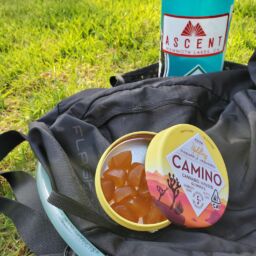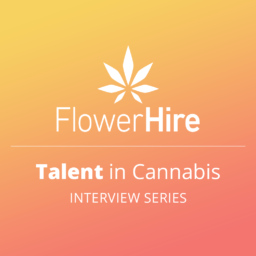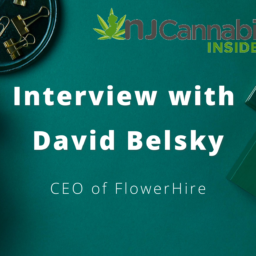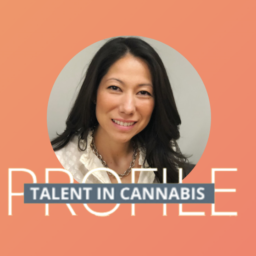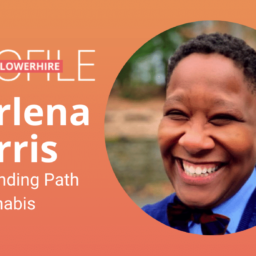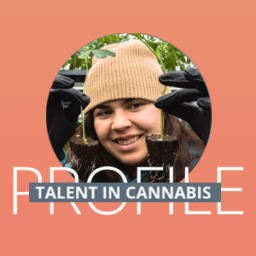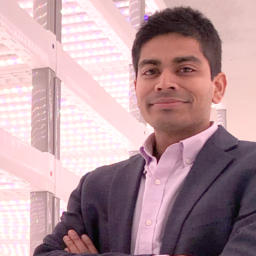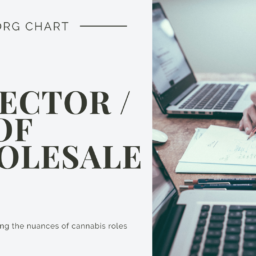In this Talent in Cannabis, we spoke with Rev. Charles King, CEO of Housing Works, the 34-year-old New York City nonprofit dedicated to ending homelessness and AIDS. Founded in 1990, it provides housing, healthcare, and advocacy for marginalized communities. The organization funds its services through thrift stores, which also promote sustainability by reselling donated goods. The thrift stores support job training and employment for those facing barriers. Housing Works’ services include primary care, mental health services, and legal assistance, while its advocacy efforts aim to influence policy and secure rights for those affected by HIV/AIDS and homelessness. Housing Works creates lasting change and improves lives.
Before Charles founded Housing Works, he started life on a cotton farm in Texas, born into a right-wing fundamentalist family that later disowned him for being gay. He went on to acquire two degrees from Yale and High Honors in Field Manoeuvres from tractor-trailer school. He’s been arrested for civil disobedience so many times that he’s lost count, all in the name of social justice and in the face of indifference to suffering. Oftentimes, nonprofits don’t want to rock the boat in fear of losing public funding, but Charles was such a fierce advocate and protestor, that NYC Mayor Rudy Giuliani despised him. He is a truly good man living a good life who has made incredible and impactful changes in New York City.
Recently, Housing Works entered the cannabis industry. In December 2023, Housing Works opened its first of many licensed adult-use dispensaries. It was the first legal dispensary to open in Manhattan, under the plan intended to drive equity for communities that have been impacted by the “War on Drugs.” Housing Works Cannabis Co. In this interview, Charles discusses:
- How entering the cannabis industry supports Housing Works’ mission
- The role cannabis plays in harm reduction for at-risk populations
- Advice for New York dispensaries who are navigating the real estate scene
- Why there is a strong presence of unlicensed cannabis stores in NYC
- How faith plays a role in his engagement with cannabis
How did Housing Works get involved in the cannabis industry?
I don’t have a very strong personal relationship with the plant, but I have always been interested in cannabis legalization and its impact on people who’ve experienced the negative effects of the War on Drugs. Housing Works was the first supportive housing program in the nation to house people without regard for their drug and alcohol use. And that’s what got me interested in the cannabis space. Plus, I’m always interested in good business opportunities!
Back under Governor Cuomo, when the conversation of cannabis legalization first started in New York, I was very close with the Deputy Counsel for Health. When he was drafting cannabis legalization, I told him I felt there ought to be a priority for nonprofit organizations that were serving people in communities that had been negatively impacted by the War on Drugs.
In the early draft, it was not going to be legal to use cannabis outside. I pointed out that people who live in public housing would have no legal place to consume. So in that context, I put forward that non-profits that serve communities affected by the War on Drugs be included as CUARD applicants — the first retail dispensaries to open for legal adult-use cannabis sales in New York State. I saw it as the perfect opportunity to both get involved in the business and further serve the community, which had experienced cannabis and other drug-related convictions.

How does your entry into the cannabis industry support the Housing Works mission?
Getting into cannabis has helped carry out our mission in 3 ways:
- The profits that we’re generating from cannabis are either being used to further our investment in the space or to assist people in leaving incarceration.
- We’ve secured a contract from the Mayor’s Office of Criminal Justice to provide vocational training and employment opportunities for people coming out of incarceration.
- We’ve invested and are providing management services to five licensed CUARD license-holding teams and we’re looking at the possibility of expanding that to others.
So, we see all of this as a real opportunity to serve the communities that have been most negatively impacted by the War on Drugs.
How does cannabis play a positive role in harm reduction for at-risk populations?
Cannabis is probably the least addictive of the substances people might use. Yes, people can use it in ways that are problematic to attaining life goals, but on the whole, we’ve seen a tremendous amount of benefits from cannabis. Cannabis, it turns out, is just as effective and doesn’t have many of the downsides that opioids have. In jurisdictions where cannabis has been legalized, there has been a decrease in the use of opioids for pain medication. Another study found that states that have legalized cannabis saw a dramatic reduction in opioid use.
We are hoping to open an overdose prevention center on West Side of Manhattan at West 37th Street. And we’re working with a researcher who is proposing to the National Institutes of Health (NIH) that we’d be allowed to provide people with cannabis as an alternative to Suboxone. Suboxone reduces the craving and blocks the opioid receptors. Cannabis reduces the craving but doesn’t block receptors if the person decides to get high. We see that as a potential benefit.
Aside from larger issues like the opioid crisis, people use cannabis for anxiety, for sleep, and as an antidepressant. When we opened our store, I was quite surprised that a woman in her 60s drove down from Westchester to buy cannabis. She was a woman who used it for anxiety and it was worth it for her to drive to a licensed provider. She didn’t qualify for a medical card but was still using it in her own medicinal way.
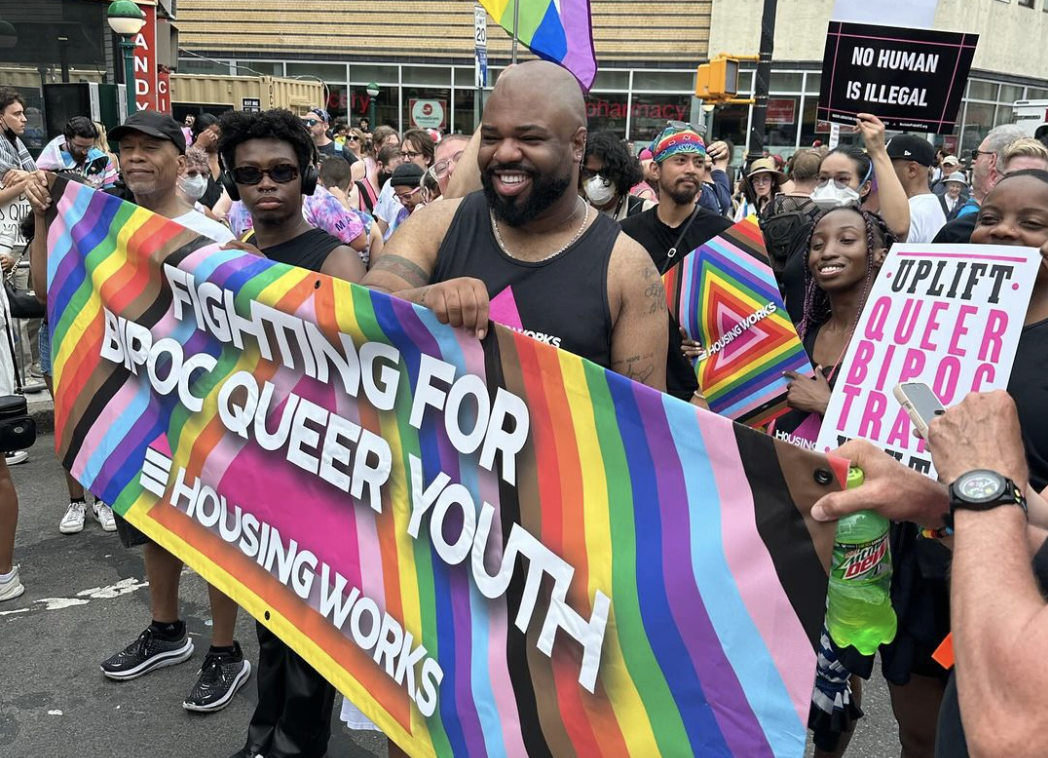
Do you have advice for New York dispensaries that are navigating the real estate scene?
I’m not sure if the Dormitory Authority of the State of New York (DASNY) – provides construction, financing, and allied services that serve the public good of New York State – is completely out of the picture now or not, but that was initially a big problem. They were locking up a lot of prime real estate in hopes of placing CUARD license holders there, which locked many people out.
My biggest advice is that you don’t need to have density to have a good business. You don’t need to be in a place like Times Square. You can have a good cannabis business in Washington Heights, South Bronx, Park Slope, or East New York. There is a lack of access to licensed cannabis and there is a strong demand. People come to our dispensary from far away because they want a product that’s been tested. Just as you can open a successful liquor store almost anywhere, I think it’s the same for cannabis.
Part of having a successful opportunity is working with the city and the state to shut down unlicensed stores in the city and the neighborhood. There’s a huge amount of money that came, largely from the Middle East, to underwrite unlicensed stores when cannabis became legal. They’re selling to minors, importing from out of state, and not paying the taxes that we’re paying. Anyone can apply for a license in New York state. So there’s no barrier if they want to be a legit business.
Why do you think there is such a strong presence of unlicensed cannabis stores in NYC?
I think there was a lot of money from some of the wealthy countries, like Saudi Arabia, coming in to underwrite cannabis stores in New York. Illegal cannabis stores are not a homegrown industry. Sometimes it’s the case that someone selling on the street corner now has a store. But that’s not the majority. There’s big outside money behind these operations. This is why it’s been so important to follow through with the consequences of having an unlicensed store by keeping the stores shut down and making them pay a price. Because if the government only seizes their merchandise, they could be back in business 24 hours later, even if it costs them $25,000 to get the products overnight shipped to reopen.
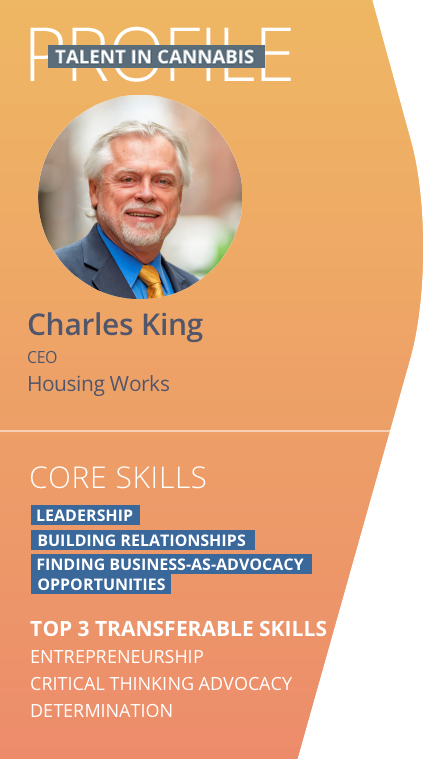
How does your faith play a role in your engagement with cannabis?
My faith teaches me not to judge others but to help and support other people who need that help and support. From the very beginning, we were the first supportive housing program in the nation to house people without regard to their drug and alcohol use. People were astounded when we got a liquor license for our bookstore. I thought, why not? I feel the same way about cannabis. I don’t think criminalizing people for possessing or consuming does any good. Historically, going back to the cocaine wars in the early 20th century, so much of that was targeted and driven by racism. The War on Drugs was a racist war.
My faith makes calling an end to the War on Drugs imperative.
How has your first year running the Housing Works Co dispensary gone?
We had a very profitable initial year. We’ve been quite pleased with what we’ve done. The competition has kicked up, but we’ve been working aggressively with the city to get unlicensed stores shut down. We recently started marketing directly to people who had been going to unlicensed stores by offering them discounts to become members of Housing Works Cannabis Co. Overall, we’re looking forward to a very good year.
What’s coming up for us is that 3 of the CUARD licenses we’ve invested in are now up and running and we’re getting the other two up and running. Helping those licenses that we’ve invested in open up and be successful will also be a part of our success.

Support Housing Works
Learn more about Housing Works Cannabis
IF YOU LIKE THIS, YOU MAY LIKE THESE TALENT IN CANNABIS PROFILES TOO:
Drew Martin – How Drew Martin is expanding the market with low-dose products
Dharsh Casinathen – a ‘rainbow’ approach to business
Kathleen Hegedus – and an unexpected lifelong passion for cannabis
Hilary Black – from grassroots to C-suite
Claire Moloney – passionate about being a first cannabis hire
Kate Steinberg – transferrable skills leading to a dynamic career path




